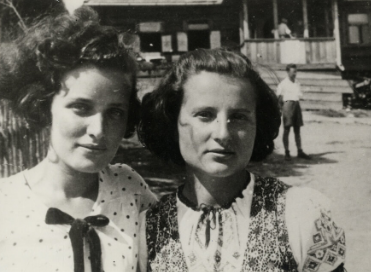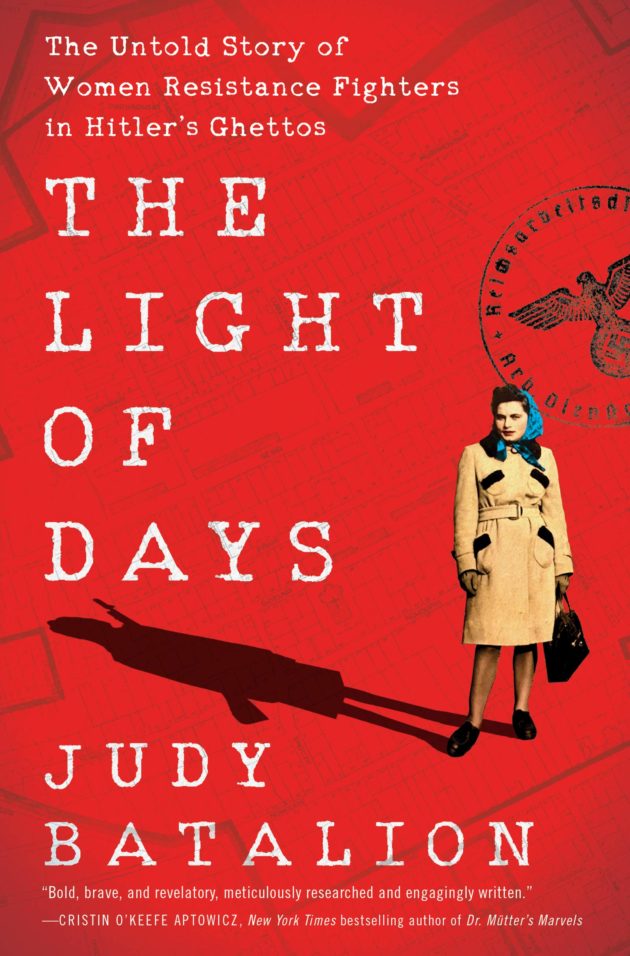
The Hidden Heroines of World War II
Assassinating Nazis, escaping death via sewers, and saving fellow Jews in World War II Poland sounds like an action movie, but it was real life for the Jewish women profiled in The Light of Days: The Untold Story of Women Resistance Fighters in Hitler’s Ghettos (William Morrow, $28.99).
Author Judy Batalion first encountered these women in a 1946 Yiddish compilation about Jewish women in the resistance. The heroines, including Renia Kukielka, Tosia Altman, Chajka Klinger, Zivia Lubetkin, and others, so intrigued Batalion that she started researching their stories. The Light of Days, with its more than 450 pages of narrative, hundreds of detailed footnotes, and 11-page bibliography, is the result.
Lilith has chronicled the stories of many of these women over the years. Most of the women who regularly risked their lives to rescue Jews and deliver news, medicines, and weapons were members of an organized, armed Jewish resistance that emerged from the Jewish youth movement that flourished in Poland between the wars. Many had been members of Labor Zionist groups like Freedom (Dror) and The Young Guard (Hashomer Hatzair). These organizations emphasized “Jewish agency, the work of the land, socialism and equality,” all good preparation for resistance work, Batalion observes.

Some of the women were partisans, leading armed fighters during the Warsaw Ghetto uprising, bombing a train full of German soldiers, and sabotaging Vilna’s electrical supply. Others worked as couriers. Using forged papers, couriers travelled the country, rescuing fellow Jews, outwitting Nazis, and smuggling grenades in their underwear. Women were ideal for this job, Batalion notes, since they tended to be more assimilated—unlike their male peers, Jewish women were more likely to have attended public schools, and to speak Polish fluently (often without a telltale “Jewish” accent). Perhaps most importantly, they couldn’t be exposed as Jews via a physical exam.
Batalion’s subjects speak through excerpts from their letters, memoirs, and Yad Vashem testimonials. Despite the grim subject matter, they’re not without humor: Partisan leader Vitka Kempner was rumored to have responded to questions about why she joined the resistance with “For the sex!”
Most Polish Jewish resistance fighters did not survive the war; many met harrowing ends. Of a courier called Astrid (she hid a handgun in her teddy bear), Batalion writes, “…she looked straight into the eyes of the secret agents with chutzpah and a naughty smile and asked if they wanted to check her documents. She was very lucky for a long time, but, like most of these courier girls, Astrid eventually ended up in prison. Tortured. Tragic. Dead.” Still, Batalion’s obvious awe of and delight in her subjects’ tenacity and sheer nerve is infectious.
The Light of Days is episodic in structure, moving from woman to woman and mission to mission. This allows Batalion to present a wide-ranging account of her subject, and to detail some extraordinary plots. These range from an armed uprising at Auschwitz to an impromptu scheme to help Jews in Będzin escape deportation. (Women of The Young Guard provided white nurses’ aprons to female detainees, then directed them to put them on and simply walk out of the buildings they’d been imprisoned in. Once they’d escaped, the “nurses” were to send the aprons back so more women could do the same.) With its suspenseful, high stakes narrative and sympathetic characters, The Light of Days is a page turner.
While Batalion focuses on events of 1942 and 1943, she also discusses her subjects’ postwar lives, when their efforts were forgotten or ignored for a variety of reasons. But remembering and honoring these women and their achievements is important. It generates a precursor of action and reform: hope. As writer, historian, and activist Rebecca Solnit observes in Hope in the Dark: Untold Histories, Wild Possibilities, “A memory commensurate to the complexity of the past and the whole cast of participants, a memory that includes our power, produces that forward-directed energy called hope.”
In The Light of Days, Batalion, author of 2016’s White Walls: A Memoir About Motherhood, Daughterhood, and the Mess in Between, has uncovered and presented “a memory that includes our power.” In restoring knowledge of these women, The Light of Days enables their bravery to inspire us, and make us hopeful. That, too, is a victory.



